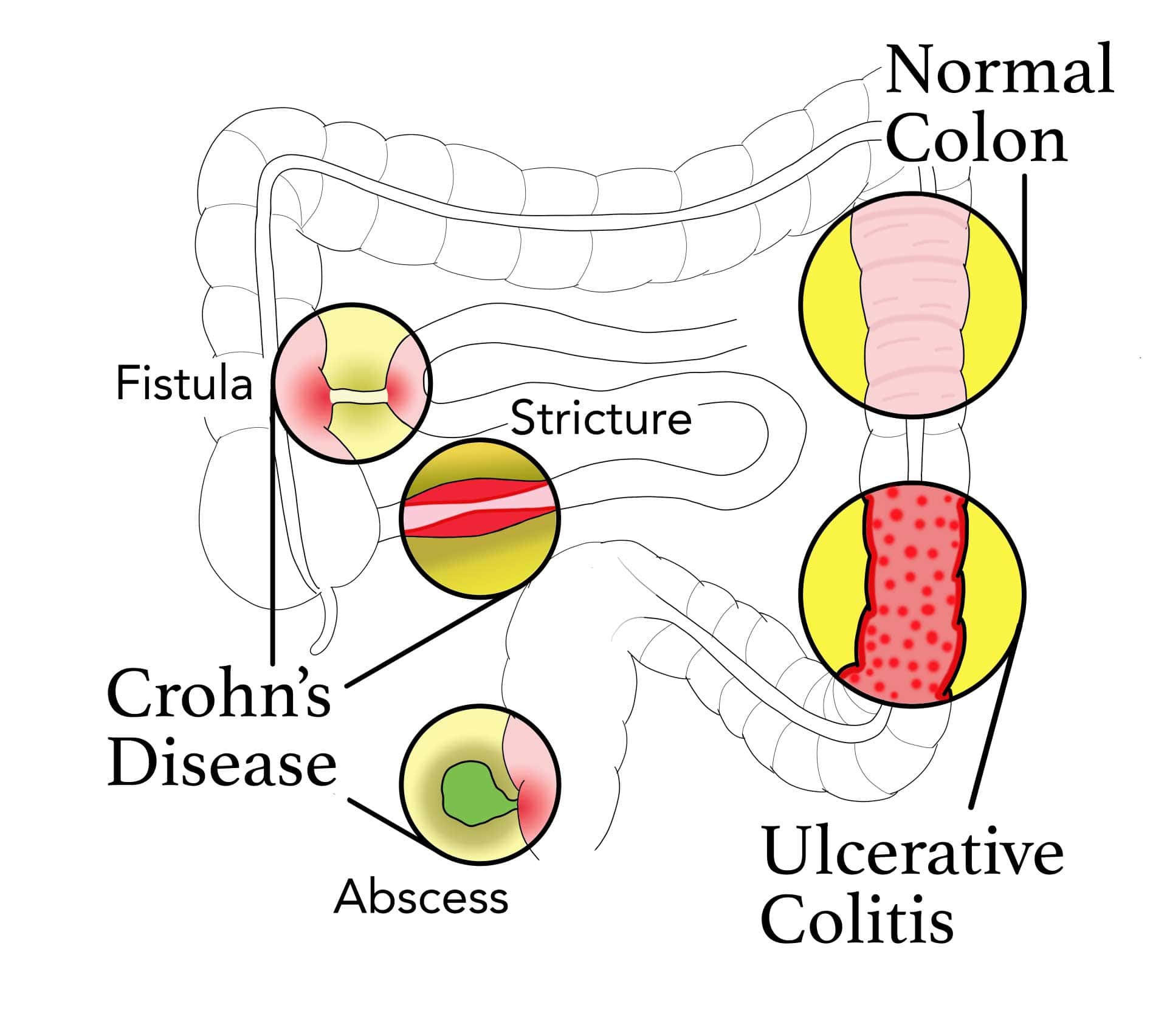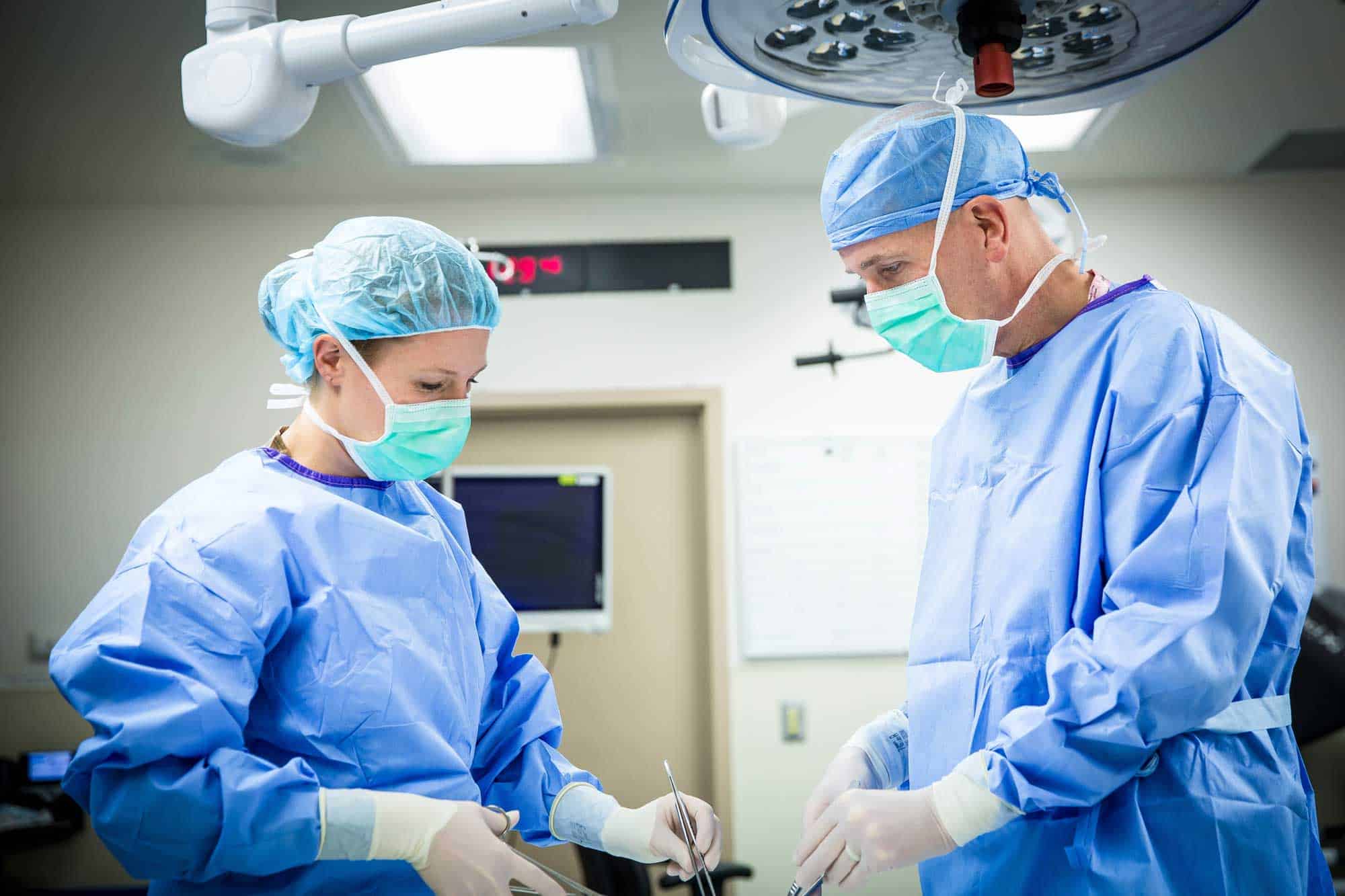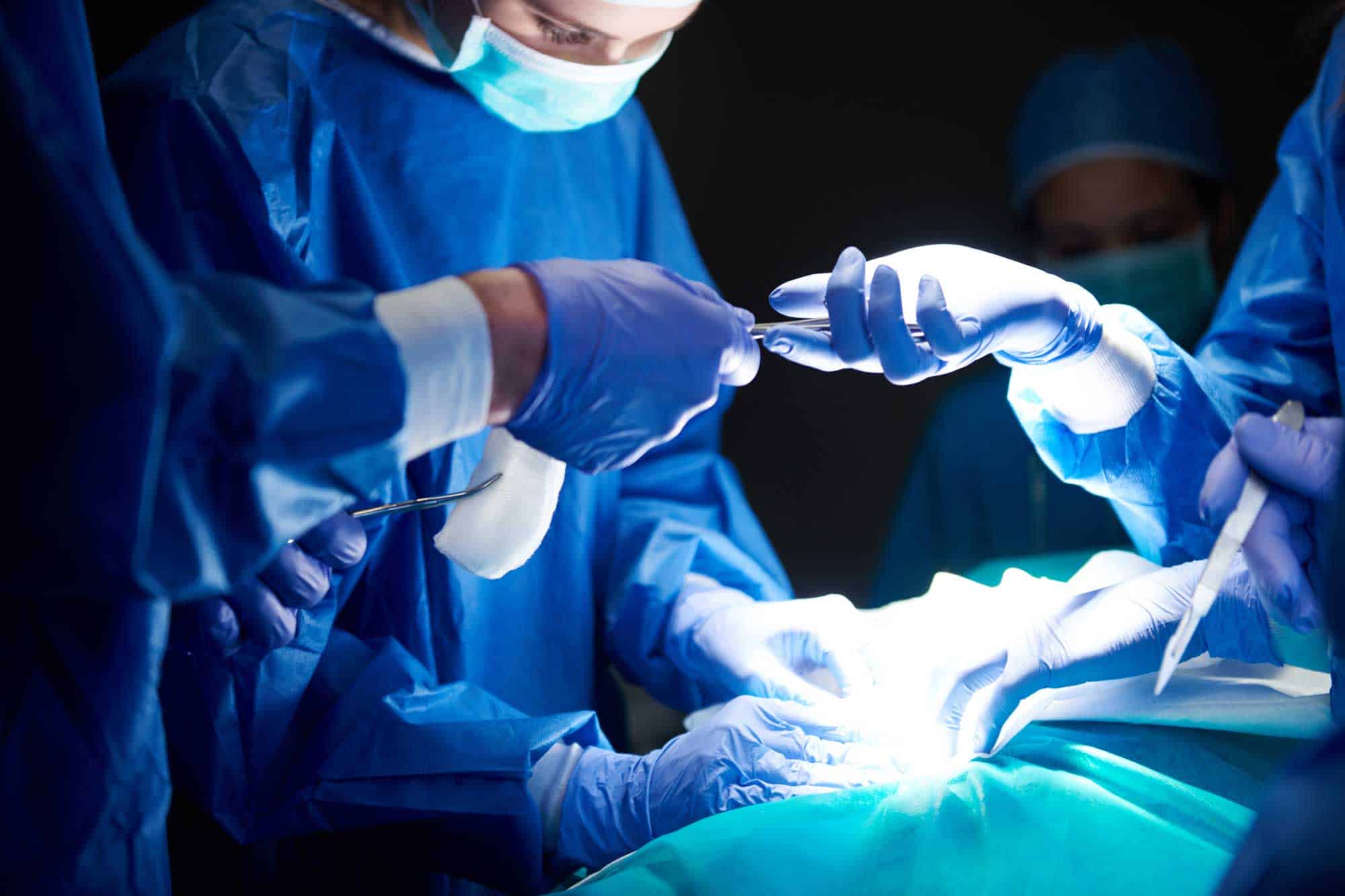Inflammatory Bowel Disease

What is IBD?
IBD refers to inflammatory bowel disease which consists of two separate autoimmune disorders called Ulcerative Colitis and Crohn’s Disease. Autoimmune disorders occur when the body mistakes its cells, in this case, the digestive tract, as a foreign substance and attacks them. So far, we still do not know why the body does this, but with research continually moving forward, we hope to someday have an answer.
What is the difference between Ulcerative Colitis and Crohn’s Disease?
Although the two diseases have many things in common, there are some distinct differences between them.
Ulcerative colitis can affect some or all of the rectum and colon (the large intestines) but does not involve any other part of the digestive tract.
Crohn’s disease can affect any part of the digestive tract from the mouth to the anus. Crohn’s commonly involves the last part of the small intestines. Crohn’s disease can cause rectal abscesses and fistulas whereas this is very uncommon with Ulcerative Colitis.
Ulcerative Colitis is typically confined to the bowel lining whereas Crohn’s disease can penetrate beyond the bowel and affect other organs.
Below is a list of some of the similarities and differences.
Ulcerative Colitis
Crohn’s Disease
Causes bloody diarrhea and cramping
Yes
Yes
Is seen in the large intestines only
Yes
No
Can penetrate through the intestines to other organs
No
Yes
Can be associated with rectal abscess/fistula
Rarely
Yes
Can involve multiple different areas of the intestines
No
Yes
The first line of treatment is medicines that suppress the immune system
Yes
Yes
Surgery can be beneficial if medicines fail
Yes
Yes
Can progress to cancer in certain situations
Yes
Yes
Causes bloody diarrhea and cramping
Ulcerative Colitis: Yes
Crohn’s Disease: Yes
Is seen in the large intestines only
Ulcerative Colitis: Yes
Crohn’s Disease: No
Can penetrate through the intestines to other organs
Ulcerative Colitis: No
Crohn’s Disease: Yes
Can be associated with rectal abscess/fistula
Ulcerative Colitis: Rarely
Crohn’s Disease: Yes
Can involve multiple different areas of the intestines
Ulcerative Colitis: No
Crohn’s Disease: Yes
The first line of treatment is medicines that suppress the immune system
Ulcerative Colitis: Yes
Crohn’s Disease: Yes
Surgery can be beneficial if medicines fail
Ulcerative Colitis: Yes
Crohn’s Disease: Yes
Can progress to cancer in certain situations
Ulcerative Colitis: Yes
Crohn’s Disease: Yes
What are the symptoms of IBD?
Signs and symptoms can be subtle at first.
There may be cramping and diarrhea with or without bleeding. The pain can worsen as the disease progresses.
Unexplained weight loss can be seen further along in the disease.
Less commonly, the disease can present emergently with a blockage or perforation.
It is important to realize that these signs and symptoms are seen for many other reasons, so if you have these issues for more than several weeks, or they keep coming back, call your primary care provider.


How is IBD diagnosed?
The most common way for the disease to be diagnosed is by a colonoscopy. This can identify the disease if it is in the colon and allow for biopsies. It can also evaluate the extent of the disease and its severity. Imaging, like CT or MRI, and specific blood tests can be helpful as well. Sometimes it can be hard to tell the difference between Ulcerative Colitis and Crohn’s Disease even with all the available tests.
How is IBD treated?
Most forms of IBD will respond well to medical treatment. There are many medications available and newer ones are frequently developed. This treatment is typically handled by a gastroenterologist. Medications are aimed at suppressing the immune system so that it will not harm the intestines. Sometimes one medication is enough, but sometimes multiple medications are required. If a medication is not effective or stops being effective, there are often other medicine options.
When is surgery indicated for IBD?
Surgery becomes necessary when an emergency occurs, such as a perforation, but more commonly, surgery is the next step when medications are no longer helping. This decision is often made between the patient and their gastroenterologist. With Crohn’s disease, there are times when a stricture/narrowing may not respond to medical treatment. In this case, surgery would be necessary to remove it.
What kind of surgery is performed for IBD?
Surgery for Ulcerative Colitis involves removing the entire colon and rectum to remove all of the disease.
A reservoir (called a J-pouch) made out of the small bowel is created and attached to the anus so that the patient can avoid a permanent ostomy.
Surgery is done robotically for a quicker recovery and to avoid large painful incisions.
This is done typically in 2 or 3 stages/surgeries and involves a temporary ileostomy.
Even if only a part of the colon is infected with Ulcerative Colitis or involved with Ulcerative Colitis, all of the colon is removed so that the disease will not come back after surgery.
Surgery for Crohn’s Disease targets the sections of the intestines causing the symptoms, but it requires removing more than these isolated sections so that the disease will not come back. This can usually be done with a minimally invasive surgery, and a colostomy is not usually indicated as necessary.
Hospital stays after surgery, in either case, are often just 1 or 2 days. If surgery has been suggested, feel free to contact our office for an appointment to discuss this in more detail.

